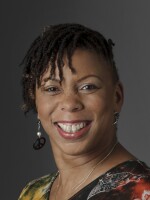LIANE HANSEN, host:
The must-attend event for Republican candidates this weekend was the annual Conservative Political Action Conference. John McCain was a no-show, but most of the other GOP hopefuls were there. When the conference wrapped up last night, many conservatives were still feeling unsure about which candidate best represents their values. And one of the most popular choices isn't even in the race.
NPR's Allison Keyes reports.
ALLISON KEYES: The one thing that's clear about this conference is the level of confusion over whom to support for president. Several Republican White House hopefuls appeared here, including former Governor Mitt Romney and former Mayor Rudy Giuliani. But in a straw poll of 1,705 voters, the reaction as pollster Tony Fabrizio read the results showed that many here are unsatisfied with their choice of candidates so far.
(Soundbite of applause)
Mr. TONY FABRIZIO (Republican Pollster): Governor Romney received 21 percent of the first ballot votes, followed by former Mayor Rudy Giuliani with 17 percent.
(Soundbite of cheering)
Mr. FABRIZIO: Followed by Senator Brownback with 15 percent.
(Soundbite of cheering)
KEYES: Former House Speaker Newt Gingrich took fourth place with 14 percent of the vote, and Arizona Senator John McCain got 12 percent without showing up, but also gathered howdy boos from the crowd. Even though Gingrich says he won't decide until fall whether he's running, he's ranked third in most national polls, but he resonates with this group, which still sees former President Reagan as its standard bearer. In the straw poll, 79 percent said they would support a candidate who described themselves as a Ronald Reagan Republican versus three percent who said they'd support a George W. Bush Republican. To many here, that's the difference between a conservative and a Republican that has swung too far to the center.
Again, pollster Tony Fabrizio.
Mr. FABRIZIO: Sorry Mr. President, this movement is still Ronald Reagan's.
(Soundbite of cheering)
KEYES: Gingrich gave the final speech and began by talking about Reagan, reminding the crowd that the late president told this group back in the '70s that conservatives don't need to pretend to be Democrats to win elections.
Mr. NEWT GINGRICH (Former Speaker of the House): We need to stand decisively for the values and the principles and the future of the American people and win the argument over which side is better capable of providing a better future.
(Soundbite of cheering)
KEYES: Gingrich talked about the need for America to rediscover God, an issue he's written a book about and asked why there's no law making English the official language for government. He also repeated his call for more substantive discussions among the presidential candidates.
Mr. GINGRICH: We need a dialogue approach to this campaign because conservatism is harder to explain in six-second sound bites.
KEYES: Nineteen-year-old Julianne Merritt(ph) attends the University of North Carolina, Chapel Hill and was among those in the crowd who want Gingrich to run for president.
Ms. JULIANNE MERRITT (Student, University of North Carolina) He definitely did a good job while he was Speaker, and he just seems to stand for some really solid conservative values, and I like to see that in a candidate.
KEYES: And Benjamin Harman(ph) of Virginia says he likes a lot of Gingrich's ideas and admires him for taking the House back from Democrats in 1994 with his Contract with America, although Harman thinks ethical problems prevent Gingrich from being a viable candidate.
Mr. BENJAMIN HARMAN: He's a man of ideas and we need somebody like that who can articulate real ideas that will excite people.
KEYES: Nearly everyone here agrees that the conservative base needs to be energized, but that may be hard until a clear frontrunner emerges, and their level of support will depend upon who that person is. And as for the poll results, it's hard to come to any conclusion about what they mean in the long run. Last year, Virginia Senator George Allen won the poll with 22 percent of the vote, but he ended up losing his Senate re-election race and his presidential chances seem to have vanished.
Allison Keyes, NPR News, Washington. Transcript provided by NPR, Copyright NPR.






